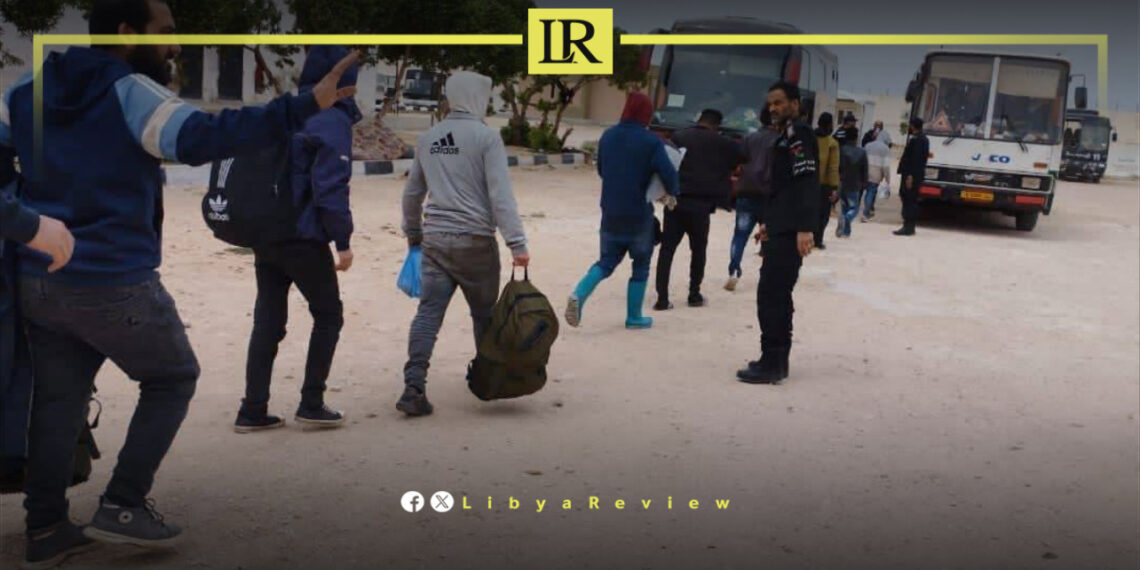Libya’s Anti-Illegal Migration Authority has deported 130 Egyptian nationals through the Emsaed land border crossing, as part of an ongoing campaign to curb irregular migration and enhance border security.
In an official statement, the authority explained that the deportation aligns with national security efforts aimed at reducing the phenomenon of illegal immigration and tackling the unregulated presence of foreign nationals within Libyan territory.
Of the deported group, 87 migrants had been intercepted while attempting to cross the Mediterranean Sea to reach Europe. Six others were referred for deportation by the Public Prosecution, while the remaining individuals were apprehended during routine security operations carried out by the authority’s branch in Tobruk.
The Anti-Illegal Migration Authority reaffirmed its commitment to reinforcing border control and contributing to broader efforts to maintain national security and public order.
This latest deportation underscores Libya’s role as a key transit hub on the Central Mediterranean migration route, and the government’s renewed push to coordinate with neighbouring countries to manage migration flows more effectively.
Libya has been in chaos since a NATO-backed uprising toppled longtime leader Muammar Gaddafi in 2011. The county has for years been split between rival administrations.
Libya’s economy, heavily reliant on oil, has suffered due to the ongoing conflict. The instability has led to fluctuations in oil production and prices, impacting the global oil market and Libya’s economy.
The conflict has led to a significant humanitarian crisis in Libya, with thousands of people killed, and many more displaced. Migrants and refugees using Libya as a transit point to Europe have also faced dire conditions.
The planned elections for December 2021 were delayed due to disagreements over election laws and the eligibility of certain candidates. This delay has raised concerns about the feasibility of a peaceful political transition.
Despite the ceasefire, security remains a significant concern with sporadic fighting and the presence of mercenaries and foreign fighters. The unification of the military and the removal of foreign forces are crucial challenges.


